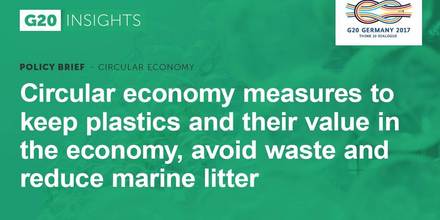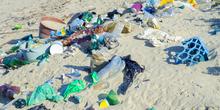Green Economy
Our Work
Latest in Green Economy
-

IEEP at T20 Summit 2017
Patrick ten Brink presents G20 policy briefing urging leaders to take action on marine litter by adopting circular economy.
-
Plastics, Marine Litter and the Circular Economy
Briefing and three product fiches explore circular economy solutions for reducing the flow of plastic waste into the oceans.
-
Beyond GDP Newsletter – March 2016 edition out now
The March 2016 Beyond GDP newsletter sheds light on the creation of indicators for the Sustainable Development Goals and relates this process to the Europe 2020 and EU Sustainable Development Strategies.
-
What do we mean by Green Economy?
What is the Green Economy? What policy actions can contribute to achieving it? And how have EU-funded research projects supported these actions?
-
Green Economy in the European Union
Elements of the green economy concept are relatively well integrated in EU strategic documents - but the focus is on achieving green/sustainable growth, rather than achieving a ‘green economy’.
-
European Parliament report on sustainable competitiveness and innovation
The CAP could, and should, be primarily to assist EU agriculture to become more internationally competitive and sustainable and to achieve this by innovation. It already has many instruments to do this, and the reforms could further assist. However the resources deployed could be far better used.
Highlights
-

Plastics, Marine Litter and the Circular Economy
Briefing and three product fiches explore circular economy solutions for reducing the flow of plastic waste into the oceans.
